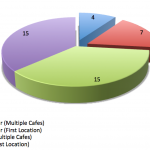
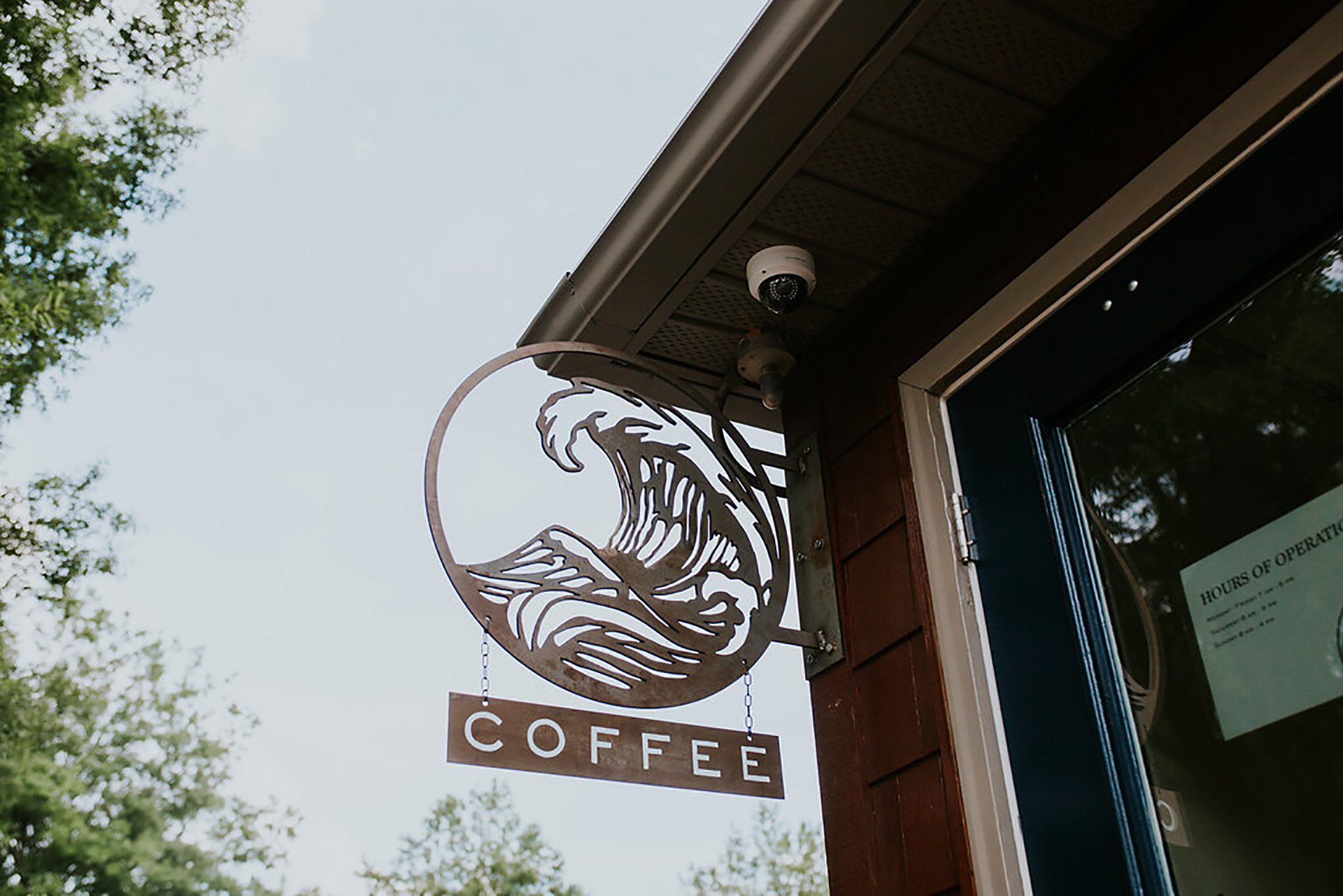
Undercurrent Coffee in Charlotte, North Carolina
Summer’s come and gone, a-trill
and molting like the whip-poor-will
gave way to autumn’s shimmered gloom.
And tho the winter’s sun grew weary
season cycles pedaled clearly
t’wards a waltzing April’s bloom.
The sun again begat the thrill
of Building-Out—an out to build!
Another summer is in the books and that means so too is another Build-Outs of Summer, Sprudge’s series highlighting new and upcoming cafes from around the world. This is our seventh season for the Build-Outs of Summer, and each year it gives us a nice snapshot of where coffee culture is and where it is heading. Entries include first-timers, second locations, sister companies, and collabs aplenty, giving us a unique data set from which to extract trendy trend lines. And extract we shall.
As we have done three seasons previous, we busted out our finest spreadsheets, Google maps, and thinking caps to make sense out of this crazy little world we call coffee. The finding we present to you now: The Analytics of Autumn: A Requiem For The 2018 Build-Outs Of Summer.
Where Are They Building
This year we saw 41 entries, the second-most in Build-Outs history behind 2016’s 43. This year’s roster includes six non-US cafes: two from Canada and four cafes from England, the most ever recorded by a country not the United States. Of the 35 American cafes, the eastern third of the country was easily the most represented with a whopping 17 shops, followed by 12 in the central, and a measly six from the once-mighty west. But while the east is most represented, the central’s greater Denver area is home to most shops on this year’s list with a total of five.
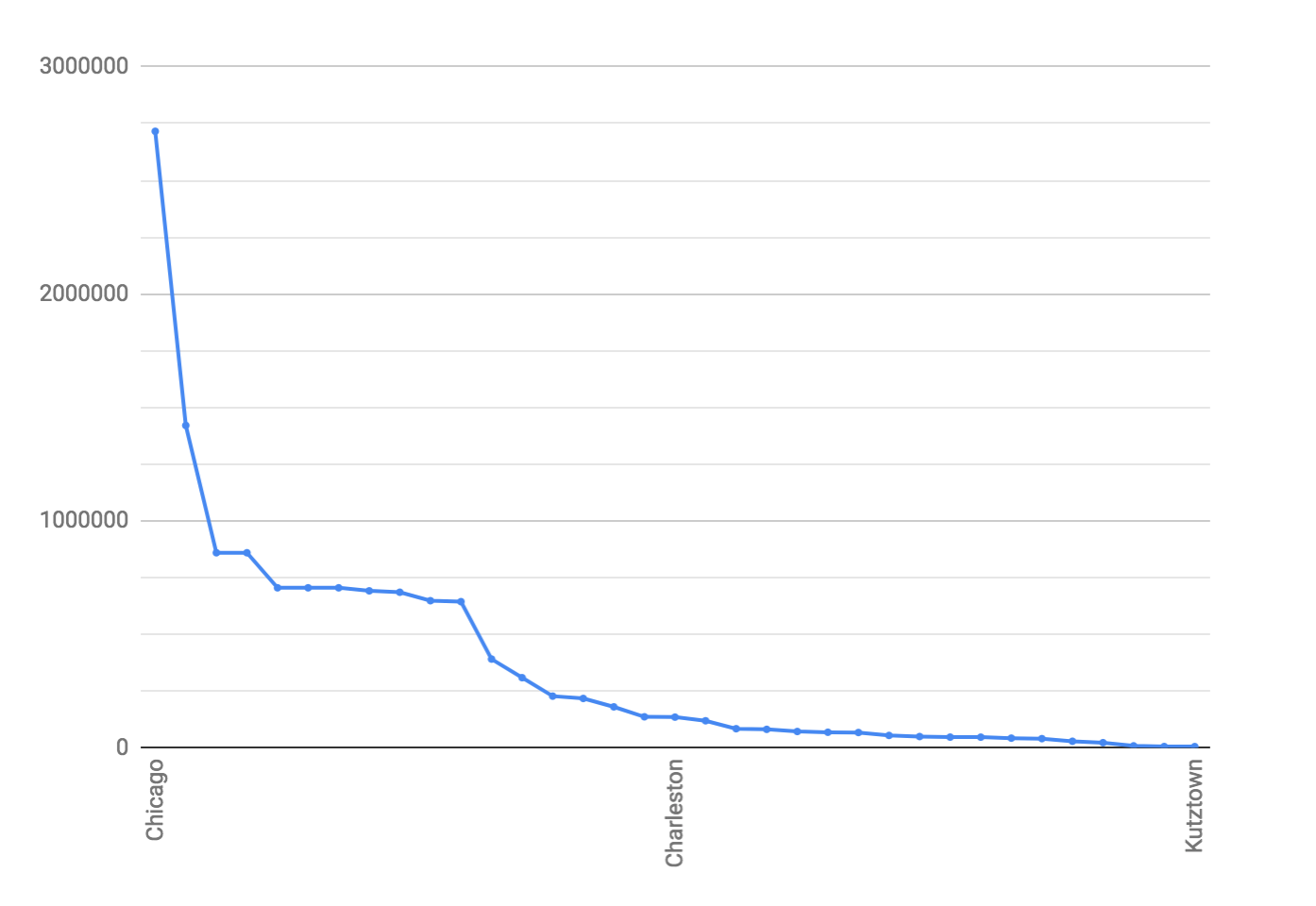
And as previous years’ Build-Outs have shown us—and something we herald just about every chance we get—coffee outside the big cities is thriving. Of the American entries, Charleston, South Carolina—the 201st largest city by population—falls as the median city with 134,875 residents. This means that over half the 35 US entries don’t even break the top 200; only 12 are from the top 50.
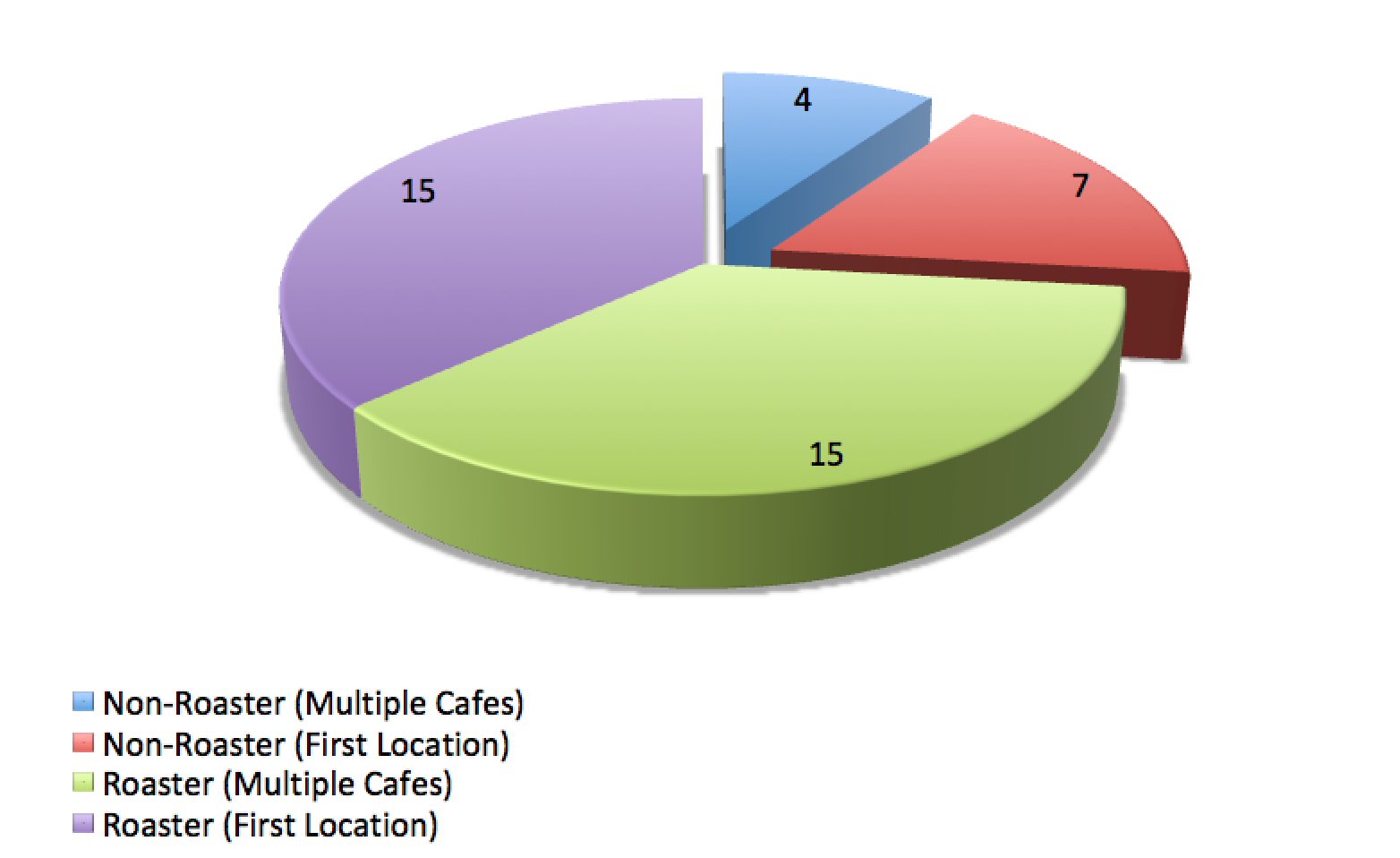
Everybody Roasts
I’ve had more than a few coffee friends tell me off the record (read: over a few drinks and not in any official interview capacity) that eeeeeeverrrrryyyybody wants to roast their own coffee nowadays. This year’s Build-Outs certainly gives legs to their otherwise anecdotal evidence. 30 of the 41 respondents—73% in total—roast for themselves, including first-time cafes, who had 15 of 22 roasting for themselves out of the gate.
And the multi-roaster may be on its last leg. Only five of 11 non-roaster cafes are multi-roasters, but included in that total are shops like Amethyst, who have one permanent roaster and one guest that rotates in on a quarterly basis. The 10-roasters-rotating-weekly cafe is becoming a thing of the past. I’m not saying the multi-roaster shop is dead, I’m just saying I’ve begun putting together my rough outline for its eulogy.
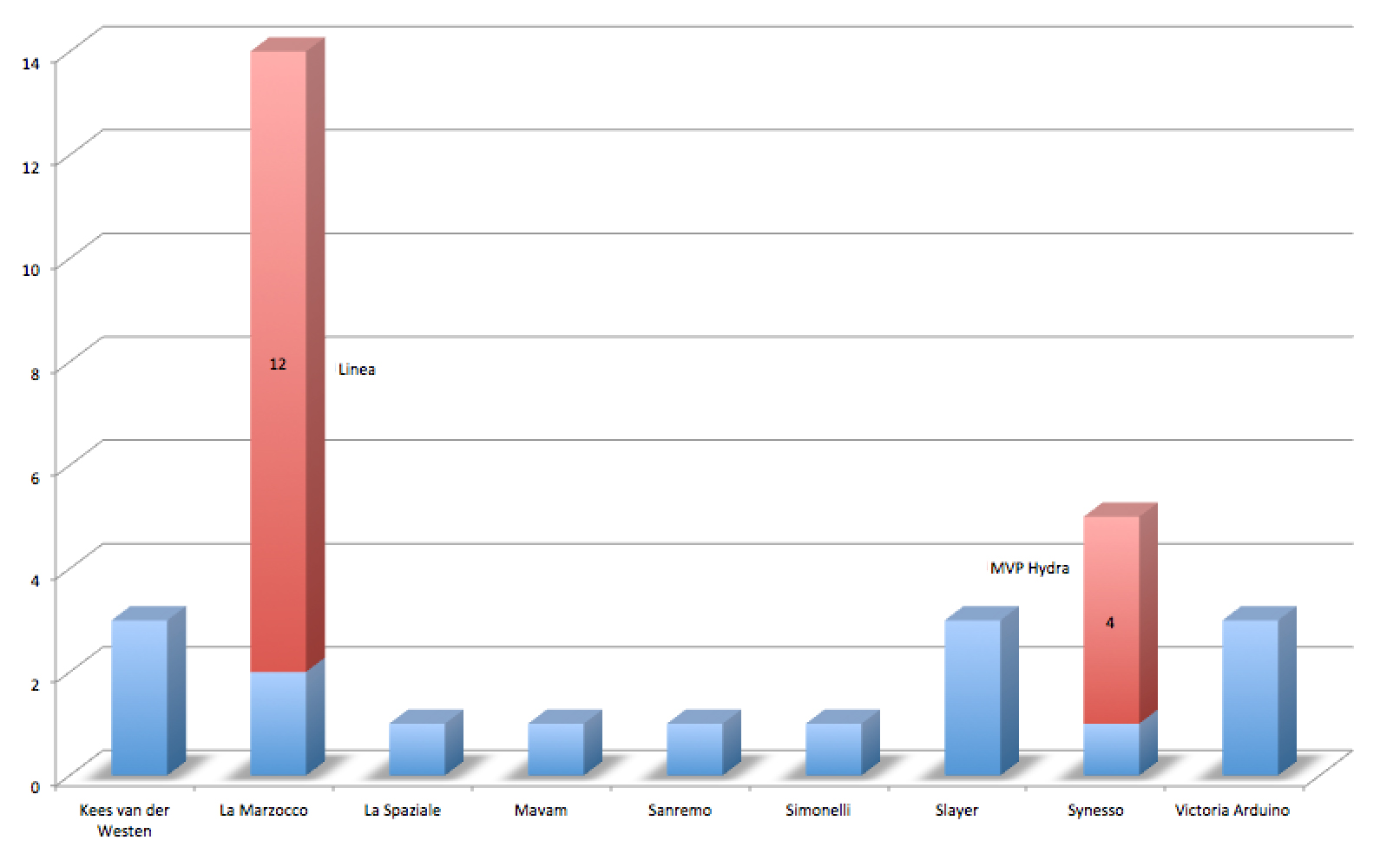
Equipment
When it comes espresso, there isn’t so much a trend as a constant: the persistent dominance of the La Marzocco Linea. Over a third of the shops that listed their espresso machine in their questionnaire use the LM workhorse. The 13 Lineas outpaces the second through fourth most used machines combined.
For grinders, the Nuova Simonelli Mythos One has put an end to Mahlkönig’s espresso dominance, beating out the PEAK by a total of 10 to seven. When it comes to espresso machine/grinder combinations, the Mythos One and PEAK tied for first, each pairing on four different occasions with a La Marzocco Linea.
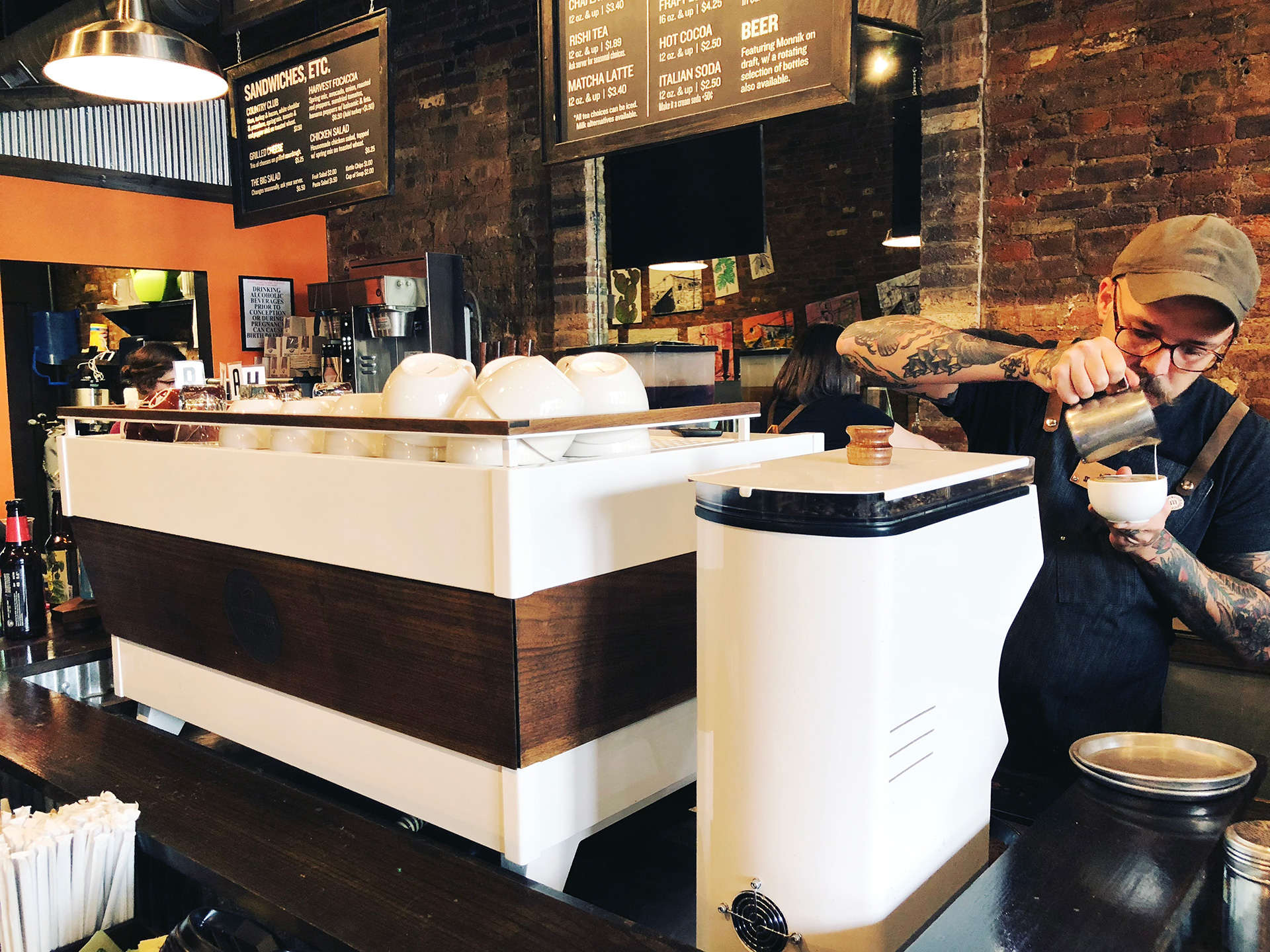
Spencer’s Coffee in Bowling Green, Kentucky
But if there’s one piece of equipment that could be described as a coffee shop must based upon the Build-Outs findings, it’s the Mahlkönig EK43, which remains the favorite grinder for brewed coffee (and to a lesser extent espresso). The total 16 EKs is yet again the most common piece of equipment found in Build-Outs cafes.
The Slighting of Hand-Brew
Speaking of brewed coffee, making it by hand is falling out of fashion. Of the 32 cafes who responded with the specifics of their brewed coffee program, only nine are doing hand-brewed coffee. That’s 28%. Only two had exclusively hand-brewed coffee as their filter option. And of the nine hand-brewers, three responded simply with “pour-over.” This continues a trend we’ve seen over the past few years, where shops used to laundry list every pour-over device they planned to use, but are now instead moving to something simpler, both in terms of what they offer and how they respond to the Build-Outs questionnaire. And while that doesn’t necessarily mean that folks don’t like hand-brewed coffee anymore, we generally find that people use the Build-Outs to discuss the things about their project they are most excited about. And that ain’t hand-brew.
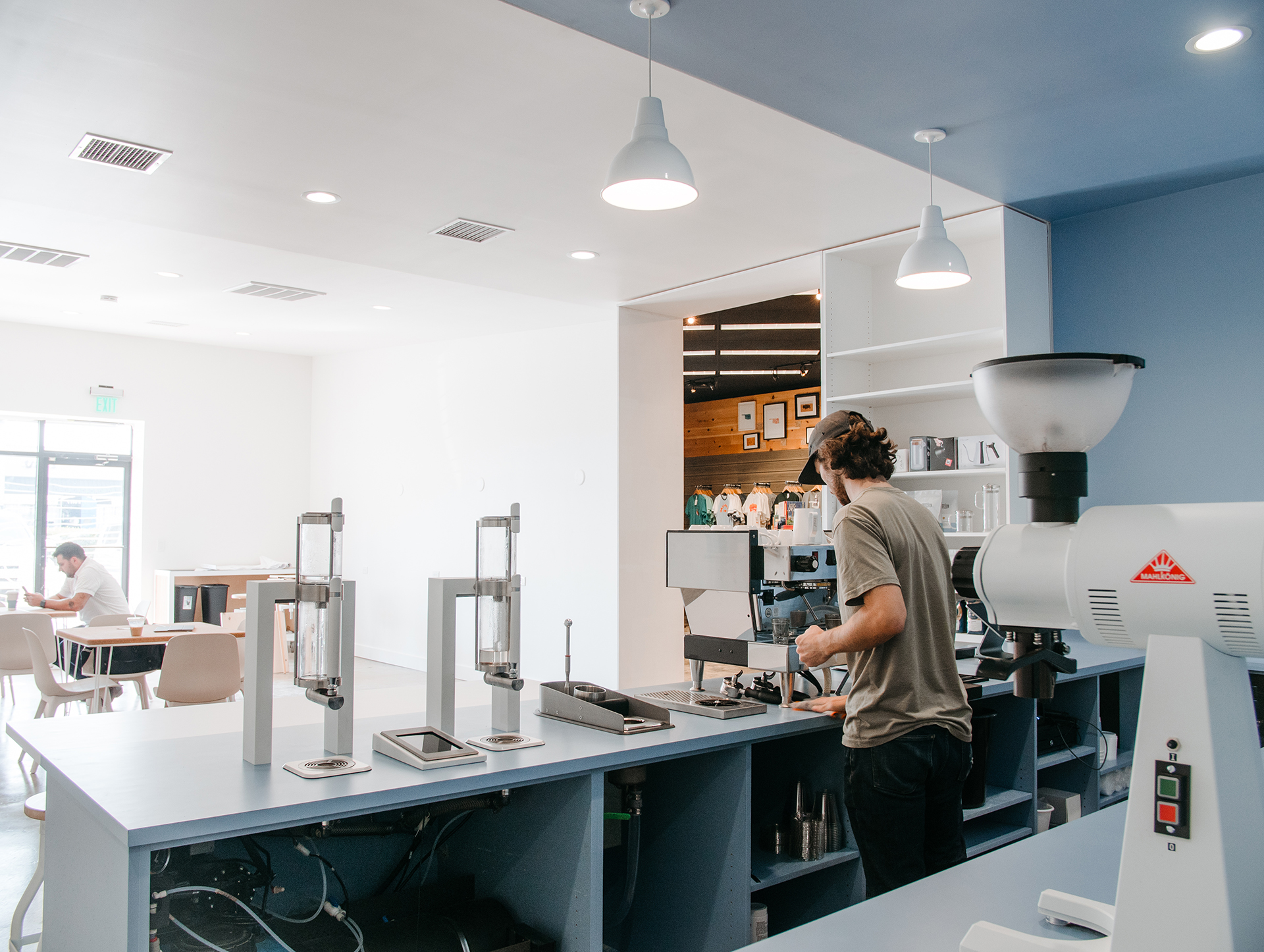
Woodshed Coffee & Tea in Oklahoma City, Oklahoma
This isn’t to say single serve coffee is necessarily on the outs; 11 other shops have some sort of automated pour-over: Curtis Gold Cup and Seraphim, Poursteady, Marco SP9, etc. In total, 62.5% of cafes have some sort of single-serve filter option.
But that’s nearly 20 percentage points lower—81.25% in total to be exact—than the number of shops who expressly mention their batch brew program. And with the exception of two, all of the 25 batch brew shops enumerated at least the brand of batch brewer they were using (btw, Curtis is the most popular batch brewer, edging out FETCO by a tally of 11 to eight). In total, 12 cafes are batch brew only, higher than both the number of automated single-serve filter coffee shops as well as the number of cafes with hand brew.
And Now, The Armchair Philosophizing
So what does it all mean? Where is specialty coffee in 2018? If new cafes are any indication—and I wholehearted think they are, Build-Outs even more so; talking about your shop in these long-format pieces allows a new owner to reach for the aspirational, to talk about what their shop is TRYING to be, whether or not they are ever really able to make 100% good on that promise. Coffee shops are moving back towards being the third place, an almost revolt against the “snobby” coffee shop. This isn’t just true, it is aggressively true. Snobby coffee shops are flat out uncool, real square, totally Melvin these days.
It’s evident in what respondents say as well as what they don’t say. Take the brewed coffee, for example. Cafes would more readily talk about their batch brew setup than their hand brew; nearly 40% didn’t even mention what type of grinder they use. The gear arms race is over—though let’s be honest, with the Linea and EK43 always taking the top spot, there was never really much of a race in the first place. Convenience and community are in.
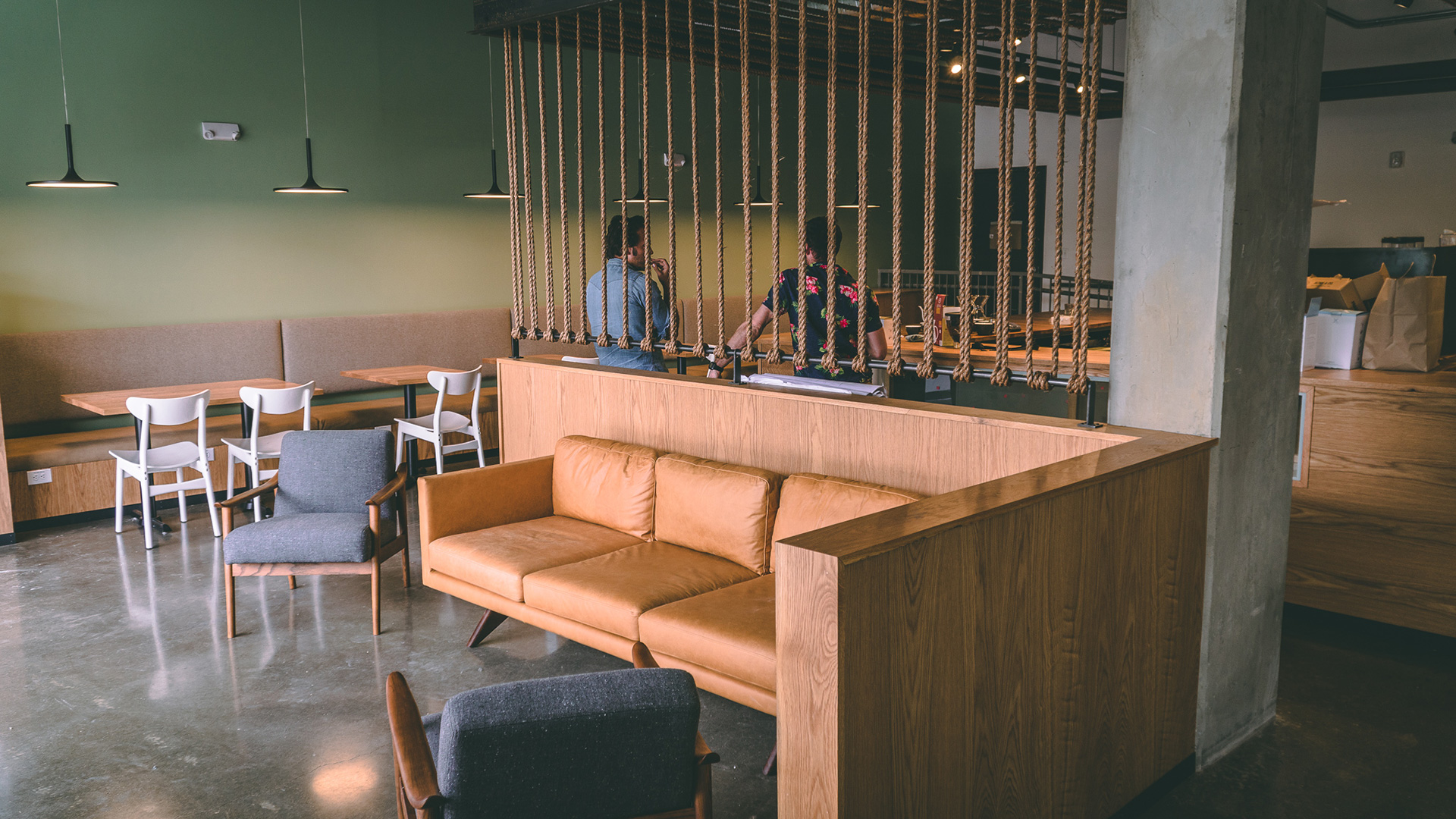
Method Coffee Roasters in Denver, Colorado
How do we know? Well, the word “community” appeared on average 1.4 times per article. But if we look at just the 24 cafes that talk about community, the word appeared 2.4 times per article. Which is all to say, building a sense of community is the common thread amongst this crop of Build-Outs.
What is perhaps a more interesting question, though, is if this is just the natural swing of the zeitgeist pendulum or something more akin to soldier’s returning home from war. For so long, specialty coffee had to fight to be taken seriously, which meant goofy gadgets, over-reverence, LOTS of comparisons to wine and sommeliers, and just a general “otherness” to help distinguish specialty from the other coffee. Now, specialty coffee is more of a household thing.
This is not to say that everyone is drinking specialty coffee, but more people are aware of it and we have (for the most part) moved past the hipster-barista-punching-bag phase. The way I see it, specialty coffee is on the same trajectory as craft beer. Once upon a time if you drank something from a local brewery, you were a “beer snob,” and engaged in some kind of special act. But now craft beer is mainstream. If you call someone a “beer snob” now for liking craft brews, you look like the asshole, not them. Specialty coffee isn’t quite there yet—it’s still a step or two behind, and still worn like a badge of pride by some. That won’t last for long. Snobbery is dying because snob-worthy coffee has gone way mainstream, big time, and that’s not slowing down anytime soon.
Is this the coffee shop returning back to its resting state, the relaxed hang out spot, or are we going to see coffee want to impose another round of super seriousness? Only time will tell.
Zac Cadwalader is the news editor at Sprudge Media Network and a staff writer based in Dallas. Read more Zac Cadwalader on Sprudge.
“Avast, Ye Builders-of-Out” original poem by Jordan Michelman.
The post The Analytics of Autumn: A Requiem For The 2018 Build-Outs Of Summer appeared first on Sprudge.
from RSSMix.com Mix ID 8200593 http://sprudge.com/the-analytics-of-autumn-a-requiem-for-the-2018-build-outs-of-summer-138037.html
No comments:
Post a Comment